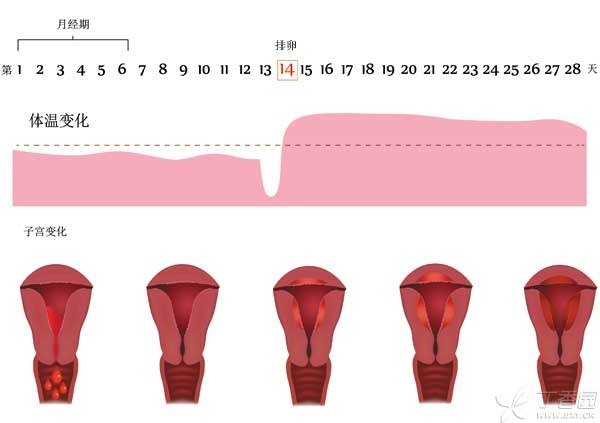
For women who are eager to have children, they all hope to get good news as soon as possible, and some even start to use early pregnancy test paper to test pregnancy within 7 days of the same room.
How effective is this? What is the most suitable time to test pregnancy?
Is menstruation really delayed?
This is one thing you need to confirm before pregnancy test. How can I know if my menstrual period has been passed?
1. Monitoring basal body temperature is helpful to judge
Luteal phase refers to the period of time after ovulation and before menstruation, which is usually a fixed 14 days.
Women who have been monitoring their basic body temperature can know their ovulation time more accurately. If they have not menstruated for another 14 days after ovulation, they are likely to have stopped menstruating.
2. How many days is the longest menstrual cycle?
If there is no basic body temperature monitoring or women with irregular menstruation, it is more difficult to judge and can only be judged according to the longest menstrual cycle.
For example, if the previous longest menstrual cycle was 36 days, then menstruation has not yet come on the 37th day, and it is necessary to doubt whether menstruation has been delayed.
Is the early pregnancy test paper accurate?
If you have confirmed that your menstruation has been delayed, you can consider using early pregnancy test paper to test your pregnancy.
The early pregnancy test paper is still relatively accurate, but a careful reading of the instructions of the pregnancy test paper will reveal that the accuracy of the one-day menopause test is 99%. The so-called one-day menopause means that if menstruation should come on Wednesday, then Thursday is the one-day menopause.
If you test in advance, the accuracy cannot be guaranteed to be 99%.
When is what the best test?
The specific what should be judged according to personal circumstances.
However, according to FDA data, it can be concluded that the later the detection time, the higher the accuracy:
- The accuracy is 99% after one day of menopause. The accuracy of the test on the day before menstruation is 93%. The accuracy is only 42% when tested 4 days before menstruation. If tested 6 days before the menstrual cycle, the accuracy is only 25%.
If you are not pregnant, it will not affect you…
If you are very eager to know if you have successfully conceived and have a good psychological endurance, you can also bear negative results and will not affect your mood, you can test them 7 days after you have the same room during ovulation.
At this time, even if you are pregnant, only a quarter of them may be detected, so if the result is negative, you need to repeat the test one day after menopause.
If you don’t want to know the news of the failure of pregnancy…
If you are eager for your son, but your mood fluctuation is unstable and you cannot accept negative results, it is better to make sure that your menstruation is delayed before testing your pregnancy, so as to avoid excessive mood fluctuation to the greatest extent.

Changes in body temperature during the menstrual cycle: the body temperature drops to the lowest point before ovulation.
Why can early pregnancy test paper test pregnancy?
At present, most early pregnancy tests on the market use human chorionic gonadotropin (hCG) in urine to determine pregnancy. Some more advanced tests use H-hCG, an analog of hCG.
Under normal circumstances, hCG will only be produced after the fertilized egg is implanted in the uterus. H-hCG is produced earlier and may be produced soon after the fertilized egg is formed. However, there are not many test papers on the market that pass H-hCG pregnancy test.
Some test paper claims to be able to detect whether pregnant or not in the first 6 days of menstruation, which is calculated according to this. The luteal phase of the average person is 14 days. If fertilization is successful during ovulation, hCG can be detected only after 7 days of ovulation at the earliest, which is almost 6 days before the next menstruation.
Responsible Editor: Zhang Jingyuan
